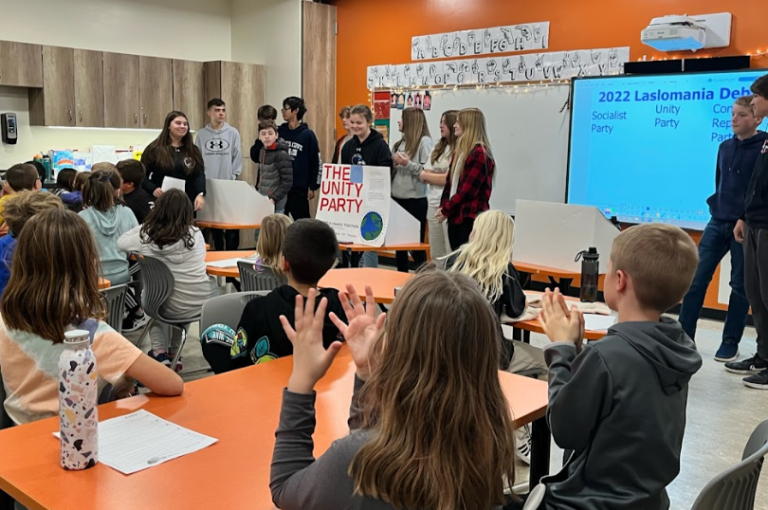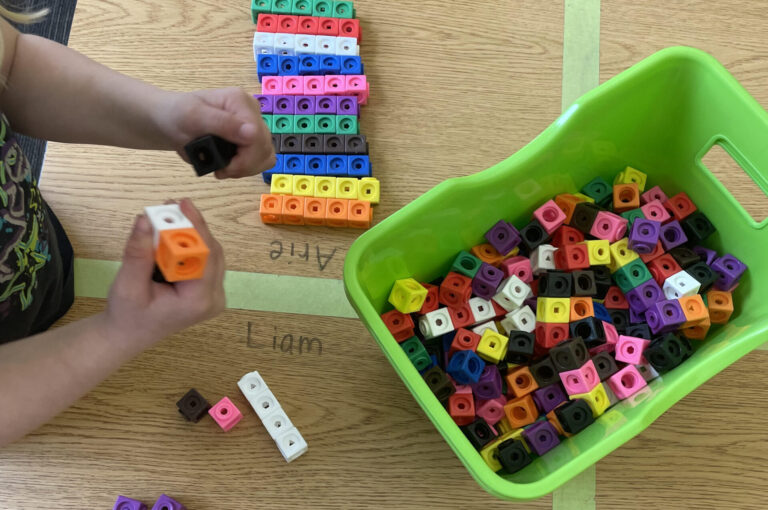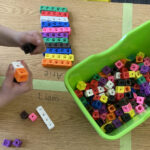
“Are all Canadians the same?” Our grade 5 students at Greentree Elementary are interviewing Canadians from across the country to find out. The first part of the inquiry process is a collaborative venture to answer the question, “How does a region affect the lives of those who live in it?”. After learning about what makes a powerful question, students developed five to ten questions to pose to a series of guests. So far, a local resident of Drumheller, AB, a resident of Victoria, B.C., and a resident of Sherbrooke, QC replied to the queries providing information to the students about those specific regions. The local resident was interviewed in the classroom and the other guests, such as Amanda in B.C. and Mary in Quebec, joined the class virtually to respond to the students’ questions.
Collaborating for Stronger Inquiry
The learning in this inquiry is rich and engages students. Students were able to enhance their questioning techniques through a round table discussion, following an interview, to assess the quality of information they gathered from the various questions. They quickly determined that questions like, “How did coal mining in Drumheller impact the living conditions for the people living in the valley?”, helped them determine the effects of regional differences, while questions like, “When were you born?”, did not provide valuable information.

Students collaborated following each interview to determine the most interesting fact about the region and to develop a task that would allow them to research and learn more about the region. For example, after interviewing Amanda from Victoria, they were excited to learn more about tourism and visiting the area. They chose to create a presentation of an itinerary of a two-day trip to the area. The teacher provided feedback during the process to make sure the content they included was specific to the region (ie. restaurants were chosen for local cuisine).
Once the students have gathered and enhanced their learning of the various regions, they will work as a class to decide how to best represent what they have learned about the regions.







